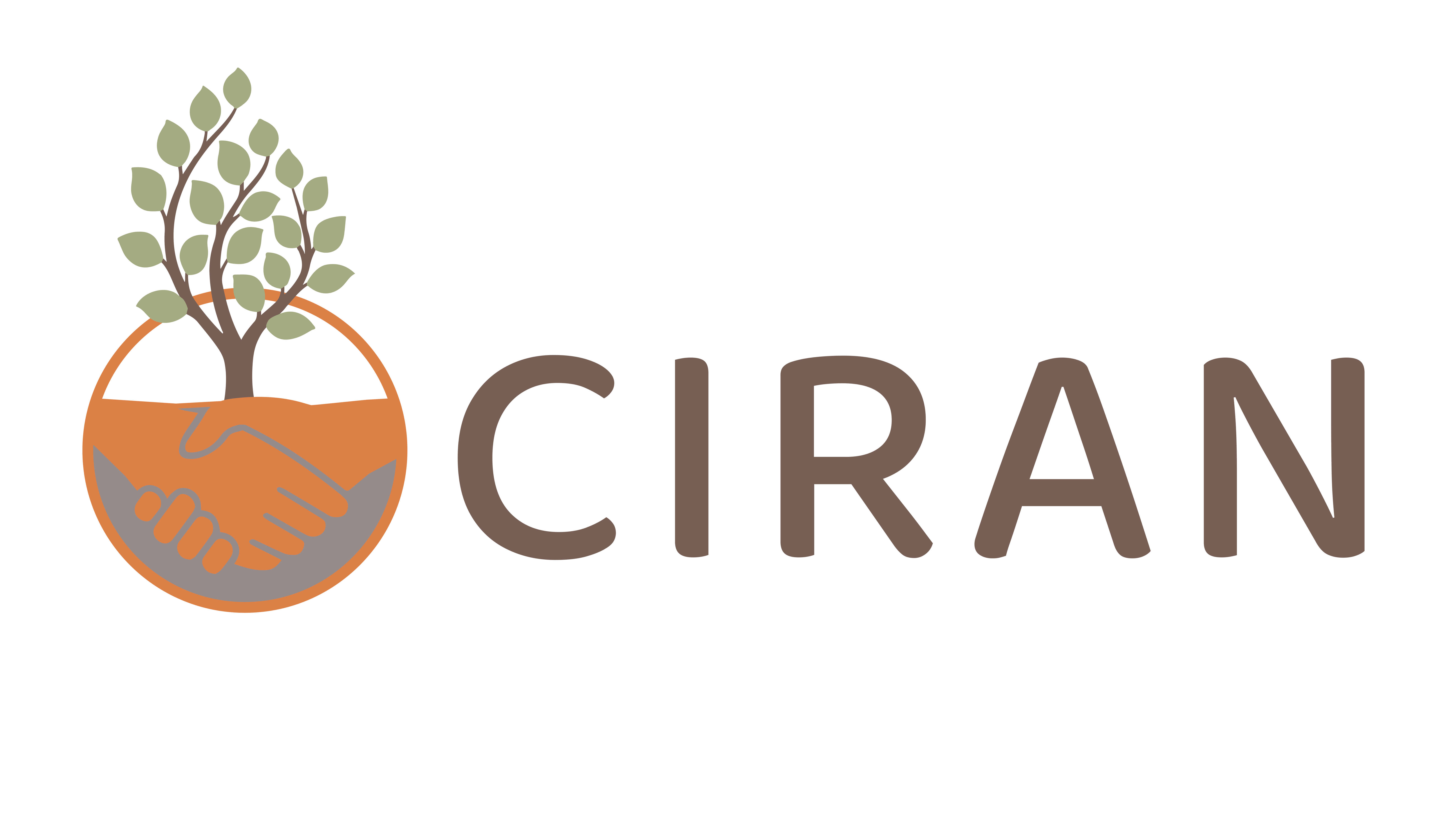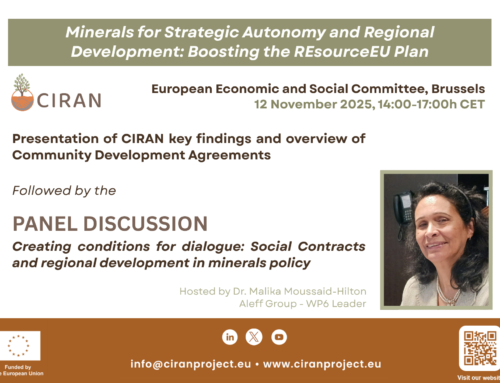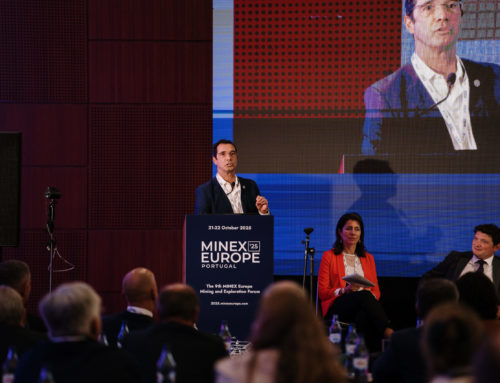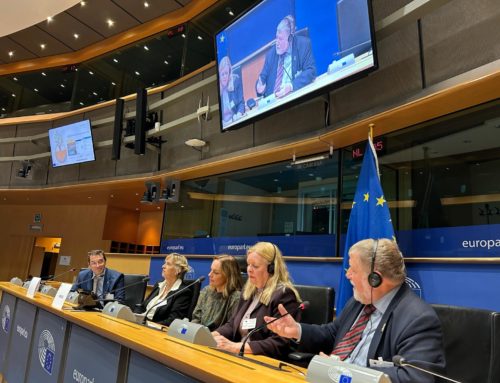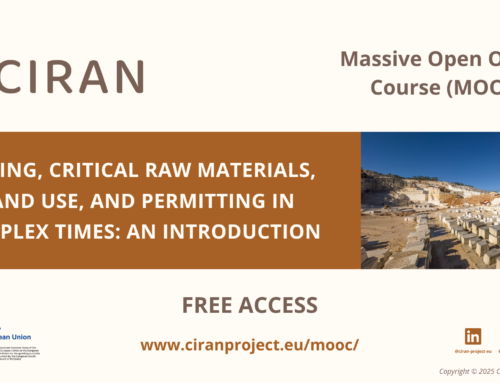The Futures of CRM in Europe explored at the 2024 Futures Conference in Turku!
The CIRAN Project was presented at the 2024 Futures Conference in Turku, Finland, in June 2024.
On 13 and 14 June 2024, CIRAN was present at the 24th Futures Conference organised by the Finland Futures Research Centre & the Finland Futures Academy at the University of Turku, in cooperation with the Natural Resources Institute Finland (Luke).
The theme of its 2024 edition was the “Futures of Natural Resources”, consisting of a pre-Conference virtual program (4 June 2024) and two full days of keynote lectures, parallel sessions, and participatory workshops, altogether generating a space for knowledge-exchange, experience-sharing, and fostering transdisciplinarity around the foresights and future alternatives for the preservation, protection, regulation, use, and application of natural resources.
In this context, the CIRAN project was represented by LPRC researcher Helena Robert i Campos, who hosted a participatory workshop on behalf of the team working on T3.3 ‘Nexus of societal vulnerabilities’ within WP3 (Nexus between Policy Decisions and Drivers of Change). The workshop encouraged participants to delve into possible future possible scenarios for Critical Raw Materials (CRMs) extraction in Europe. The event brought together leading experts, policymakers, and industry stakeholders to discuss European CRM autonomy and the prospects for their extraction in European environmentally protected areas, highlighting the relevance of circularity across value chains and consumption patterns, as well as the transformative trends in the extractive sectors, such as the advances in robotization and remote-sensing techniques.
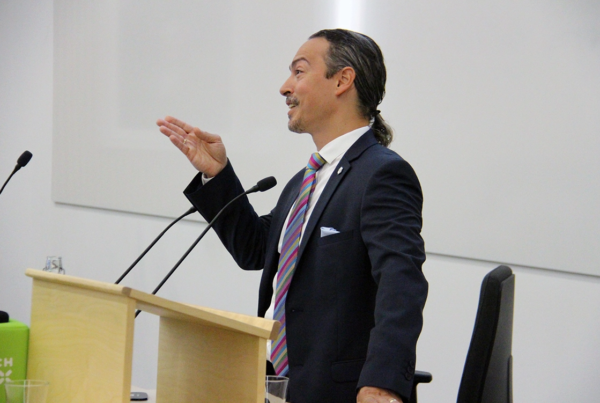
Dr. Raphael Popper, Founder and Director of the Centre for Foresight and Internationalisation (Poland) and Futures Diamond Ltd (UK), Director of Executive Education in Foresight at the MIOIR, University of Manchester (UK), and Adjunct Professor in Futures Studies, Foresight and Innovation Management at the Finland Futures Research Centre, University of Turku (Finland), addressing Conference participants with the Keynote speech ‘Green Horizons: Navigating Sustainable Futures with Forest-Based Bioeconomy Roadmaps’. Source: Futures Conference 2024, University of Turku.
Participants were introduced to the four Futures Scenarios for 2035 generated by La Palma Research Centre from the outputs of previous foresight exercises such as the Delphi Survey. Afterwards, participants had the chance to actively discuss and outline the key drivers and changes that need to happen to support sustainable CRM management. These included, among others: the establishment of solid regulatory frameworks for permitting and accountability mechanisms to ensure transparency across exploration, extraction, and processing processes, especially in environmentally protected areas, and the need to strengthen partnerships with non-EU countries to secure diversified supply chains and fair cooperation on CRMs.
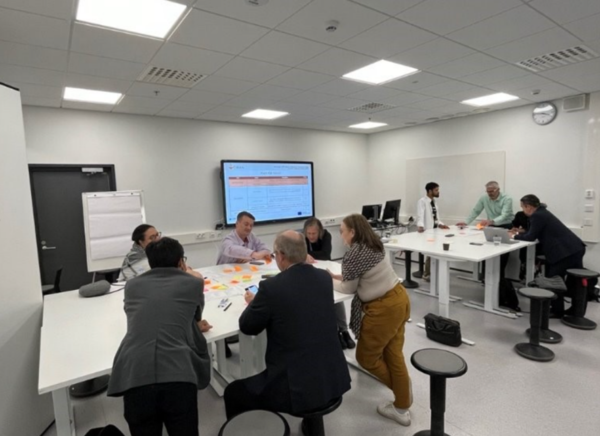
Futures Conference participants at the workshop ‘CIRAN 2035 Future Scenarios for sustainable CRM extraction in Europe’, led by LPRC at the University of Turku. Source: La Palma Research Centre, 2024.
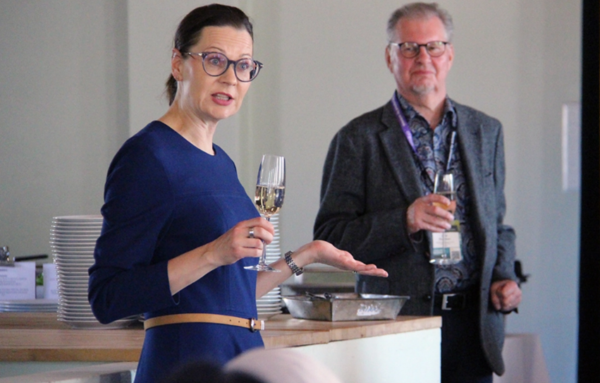
Minna Arve, Mayor of Turku and First Vice-President of ICLEI (Local Governments for Sustainability) welcoming participants at the Conference dinner. Source: Futures Conference 2024, University of Turku.
To conclude, the LPRC team acknowledges the great engagement of workshop participants and thanks them for their valuable contribution to the development of the CIRAN project. CIRAN equally thanks the organising institutions for the opportunity to participate and for successfully coordinating another edition of the Futures Conference. Looking forward to participating in Turku in the future!
